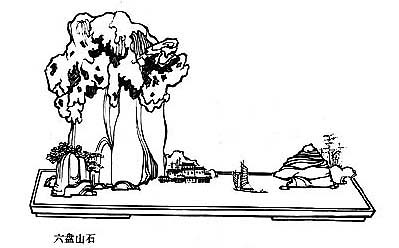36 Ji 
 – Les 36 stratagèmes
– Les 36 stratagèmes
Répertoire de proverbes tactiques liés au Yi Jing et aide-mémoire pour se tirer de situations conflictuelles. Trad. Doc Mac Jr (fr) et Vestappen (en)
25. « Voler les poutres, échanger les piliers »
26. « Injurier l'acacia en désignant le mûrier »
27. « Jouer l'idiot sans être fou »
28. « Monter sur le toit et retirer l'échelle »
29. « Sur l'arbre les fleurs s'épanouissent »
30. « Changer la position de l'invité et de l'hôte »
36ji V. 27.
« Jouer l'idiot sans être fou »
Laisse l'adversaire sous-estimer tes capacités.
Feindre l'ignorance et ne pas bouger vaut mieux que feindre la connaissance et faire des mouvements imprudents. Rester immobile et dissimuler ses propres intentions.
Les nuages et le tonnerre symbolisent la difficulté initiale.*
En temps de guerre, l'effet de surprise peut être obtenu soit par le secret, en adaptant vos manœuvres à celles de l'ennemi, soit par la duperie, en faisant en sorte que l'ennemi mésestime l'objectif de vos mouvements à découvert. Le secret est la méthode usuelle et elle est immédiatement applicable à grande échelle.
Celui qui n'est pas prêt à l'action peut entreprendre des manœuvres extravagantes pour distraire l'adversaire. Mais « jouer l'idiot... » offre souvent à l'ennemi des indices pour détecter vos intentions réelles. En général, le dirigeant militaire essaie de se conformer à la maxime chinoise : « Au repos, soit tranquille comme une jeune vierge, en mouvement, soit vif comme le lapin fraîchement libéré ». Quand il n'est pas prêt, il fait l'ignorant.
Cette stratégie préconise également au commandant de ne pas expliquer ses ordres à ses hommes.
* Image de l'hexagramme n°3 du Yi Jing : Zhun (la difficulté initiale)... Le sage fait jaillir l'ordre du chaos. Le temps n'est pas encore venu pour l'action.
Doc Mac Jr
Feign Madness But Keep Your Balance
Hide behind the mask of a fool, a drunk, or a madman to create confusion about your intentions and motivations. Lure your opponent into underestimating your ability until, overconfident, he drops his guard. Then you may attack.
Sui Dynasty China
During the final years of Emperor Yang of the Sui Dynasty there appeared a ballad that foretold the fall of the house of Sui and the ascent of a man named Li as emperor. The ballad became immensely popular among the disaffected subjects of Emperor Yang's infamous rule. The emperor, being superstitious and believing in the prophecy himself, began a campaign to search out and execute anyone of importance with the surname Li. He had numerous ministers and officials along with their entire families put to the sword. A minor official whose name was, Li Yuan, was serving as superintendent in the provinces when he was summoned to the court. Li Yuan delayed appearing in court by claiming poor health. Li Yuan had a niece who was a palace maid and one day the emperor asked her where her uncle Li has been. The lady replied that her uncle was ill. The emperor said: "I wonder if he is courting death?" When Li Yuan heard this he was certain that if he obeyed the summons to court he would never return. Thereupon he feigned madness and pretended to become an incorrigible drunk. When the imperial spies reported Li's behavior the emperor thought that a madmen could never fulfill the prophesy and was no longer suspicious of Li. Surprisingly, two years later the Sui emperor placed Li in charge of a field army to defend the empire against barbarian incursions. Li fought bravely, won the respect of his troops, marched on the capital, and went on to found the illustrious Tang dynasty thus fulfilling the prophecy.
Verstappen

Les 36 stratagèmes – 36 Ji V. 27. – Chinois off/on – Français/English
AliasThirty-Six Strategies, Thirty-Six Stratagems, Secret Art of War, Les 36 stratagèmes, Les Trente-six stratégies
Le Canon des Poèmes, Les Entretiens, La Grande Étude, Le Juste Milieu, Les Trois Caractères, Le Livre des Mutations, De la Voie et la Vertu, 300 poèmes Tang, L'Art de la guerre, Trente-six stratagèmes
Bienvenue, aide, notes, introduction, table.
Index – Contact – Haut de page
